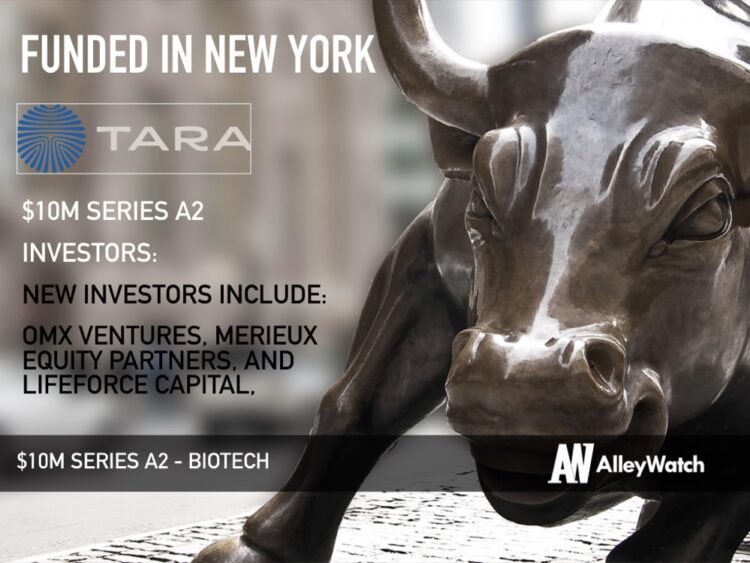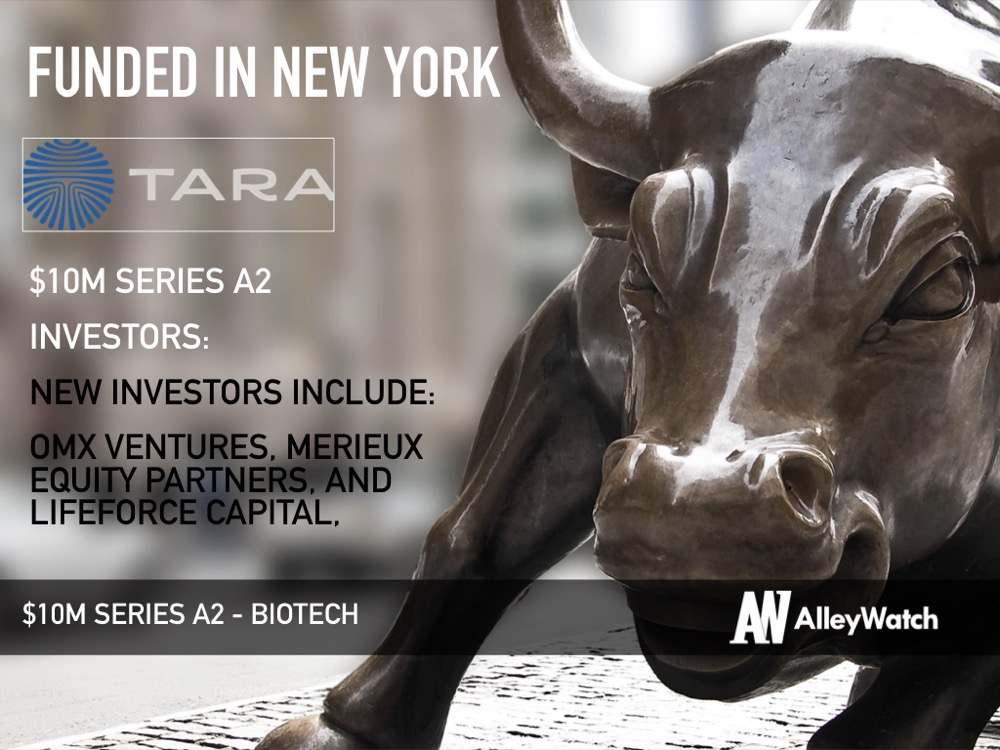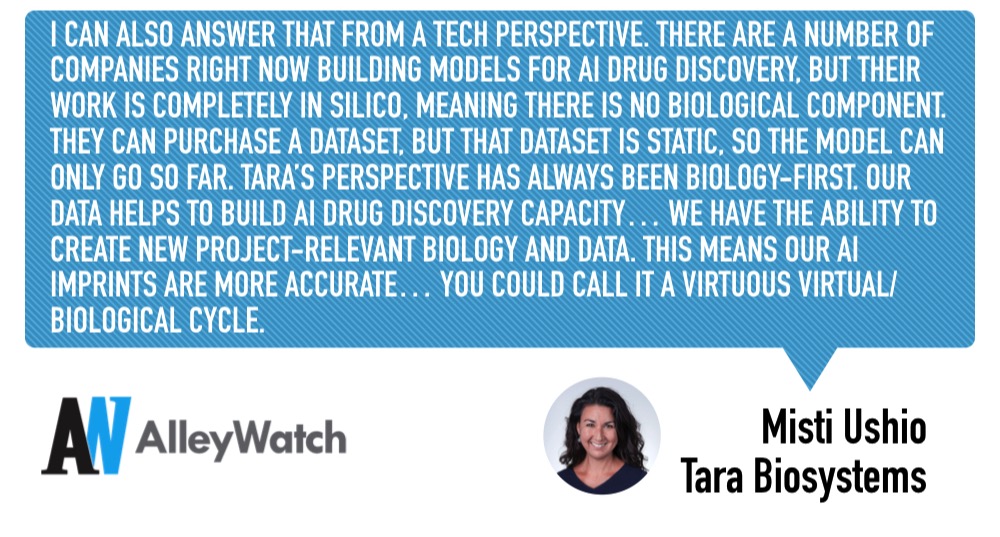The average time to get a drug to market, crossing FDA hurdles, is 12 years and costs in excess of $1B. TARA Biosystems has developed breakthrough technology to generate human tissue outside of the body that can speed up the drug discovery part of the process. Known as in vitro biology, TARA Biosystems grows translational tissue to help pharma and biotech companies to evaluate the effectiveness and safety of new drugs. Instead of testing on animals, which are imperfect stand-ins, researchers will be able to test drugs on actual human tissue – without causing risks to individuals. Partners save time and money throughout the drug development process and right now TARA is the only company that can generate human cardiac tissue. The technical process can be replicated across other tissue types as well but cardiac care is the focus for now. The company has four core components to its business – an engineering platform, revenue-generating pharma services, drug discovery portfolio, and Imprint Data, which is the company’s growing data assets.
AlleyWatch caught up CEO Misti Ushio to learn more about the benefits of in vitro biology, TARA Biosystems’ impact on drug development, and the company’s recent funding round, which brings the total funding raised to $21.3M.
Who were your investors and how much did you raise?
TARA just raised $10M in an A2 round. Our new investors included OMX Ventures, Merieux Equity Partners, and LifeForce Capital. They join existing investors, including Partnership Fund for New York City, Trancos Ventures, DEFTA Partners, New York Ventures, and Tachyon Ventures, who also participated.
 Tell us about the product or service that TARA Biosystems offers.
Tell us about the product or service that TARA Biosystems offers.
We develop in vitro biology with a focus on translational heart tissue models. What that means, for everybody who isn’t familiar with biotech, is that we have invented a platform technology that can generate human tissue outside of the body. We can then help pharmaceutical and biotechnology companies evaluate both drug safety and efficacy on a number of critical metrics in the lab to quickly understand human response to new medicines in development exponentially earlier in the development cycle than is currently possible. At a baseline level, this matters because when drugs are developed, they can’t be tested in humans for a long time because the effects are not known. Instead, they are tested in animals, which are an imperfect stand-in, and then even when they are tested in humans during clinical trials, it’s a risky endeavor. What we can do is keep the human but diminish the risk, if that makes sense. In addition, this greatly reduces both speed and cost in getting vital drugs to market and reduces the need for animal testing. We believe the implications of this technology are quite significant, and we intend to scale it to other tissue types, like skeletal muscle, so its value expands well beyond our current heart focus.
What inspired the start of TARA Biosystems?
TARA was founded on the groundbreaking research of our scientific founders Gordana Vunjak-Novakovic and Milica Radisic. They had done the pioneering work of proving that complex human tissue could be grown in the laboratory, publishing their research in top scientific journals like Nature and Cell. TARA was born out of the belief that those tissues could transform the way new medicines are made by providing access to human data much earlier than ever before. In a less scientific sense, we ground our inspiration in empathy and what we can do to make life better. We have an ethos that guides our work. I personally feel inspired by every day – What can we do to enable better health and longer life for people everywhere?
How is TARA Biosystems different?
Well, we’re a new technology in an industry that has done things the same way forever, so in some ways that alone makes us different. I think, as a scientific endeavor, we also try to approach our work with more humanity. Biotech can appear a little inhumane at times, but the reality is that it’s the opposite. We want that to show through. That’s one way I think we’re unique.
From a biotech perspective, we spent years developing our platform to achieve in vitro biology that matches the physiology of human heart muscle. Since 2014, we have been improving our biology and continuing to grow the business by working closely with the pharmaceutical industry. We’re helping to answer difficult questions about the safety and efficacy of novel medicines well in advance of clinical trials – questions that no other lab-based system has been able to reliably predict – saving our customers time and money by killing bad drugs early on in the discovery and development process and advancing good ones. In this way, we are the only commercial-scale heart system that realizes the promise of stem cell technology by combining it with 3D tissue engineering, all while providing a more predictive, faster, and cost-effective alternative to current animal-based testing.
I can also answer that from a tech perspective. There are a number of companies right now building models for AI drug discovery, but their work is completely in silico, meaning there is no biological component. They can purchase a dataset, but that dataset is static, so the model can only go so far. TARA’s perspective has always been biology-first. Our data helps to build AI drug discovery capacity because biology will always be central (we are, after all, walking biology so this makes sense!) we have the ability to create new project-relevant biology and data. This means our AI Imprints are more accurate. And not only are they more accurate, at a glance. They continue to become even more accurate and predictive because we are constantly generating new biological data to feed the system. You could call it a virtuous virtual/biological cycle.
What’s your business model?
We have four core components to our business – our tissue engineering platform, our revenue-generating pharma services, our drug discovery portfolio, and our constantly growing data asset, which we call Imprint Data. TARA’s efforts are directed between partnering with pharmaceutical companies and forwarding our own internal drug discovery projects. In working with big pharma, we are helping to accelerate their drug development programs and in turn, we generate revenue to fund our own internal discovery. In tandem, we are using the human data we uniquely generate to explore in silico AI capability to accelerate and reinforce our drug discovery work.
How has COVID-19 impacted your business?
Being a Manhattan-based laboratory, we made the tough decision to cease all lab operations in mid-March 2020 out of concern for the safety of our team and community. Although we were not able to perform our core lab-based projects, we were able to use our time working from home to analyze an aggregated set of our data to understand how we can generate our data more efficiently, which has helped us come back to the lab stronger than when we left. And, while we are working hard to adjust to the new normal of becoming a virtual team, we recognize that we are very fortunate that our technology continues to be in high demand, including new projects that investigate the cardiovascular effects of COVID-19, which is an effort we are proud that we can be a part of.
What was the funding process like?
Biotech can be a challenging place to raise money. It’s not a quick exit investment, and you really need to be able to talk about sometimes very complex things in a way that makes sense to non-scientists. So it takes time. We’ve been lucky that we have been able to connect with a number of like-minded investors who believe in and share our vision. What’s exciting is that our work crosses boundaries – biological and tech – which means that we have life science investors, and now, increasingly, tech investors. While they come from different places, they can all converge on the vision of a synergy of biology and data working together to bring new medicines to patients safer and faster.
Biotech can be a challenging place to raise money. It’s not a quick exit investment, and you really need to be able to talk about sometimes very complex things in a way that makes sense to non-scientists. So it takes time.
What factors about your business led your investors to write the check?
We have a big vision, an incredible team, and a proven technology with a solid value proposition. I find that, increasingly, investors want to be putting capital to work in places that will improve global society. At this date we are the only company that can generate human heart tissue with the fidelity we do. We have a proven track record with year-over-year growth, a continually growing pipeline of projects, and there are several dimensions to leverage our platform beyond the heart. I’m probably biased, but I think there’s a lot to like.
What advice can you offer companies in New York that do not have a fresh injection of capital in the bank?
Stay focused and try your best to keep the business alive and continue to build value, even if it feels incremental for now.
You are seconds away from signing up for the hottest list in New York Tech! Join the millions and keep up with the stories shaping entrepreneurship. Sign up today





